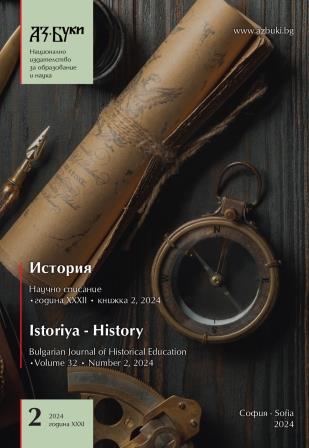Политиката на Белград към турското и албанското малцинство в Югославската федерация с акцент на демографията от края на Втората световна война до смъртта на Тито
The Policy of Belgrade towards the Turkish and the Albanian Minorities in the Yugoslav Federation with an Emphasis on Demography from the End of World War II to Tito's Death
Author(s): Mariyana STAMOVASubject(s): History, Social Sciences, Cultural history, Sociology, Comparative history, Political history, Social history, Recent History (1900 till today), Demography and human biology, WW II and following years (1940 - 1949), Post-War period (1950 - 1989), Migration Studies, Ethnic Minorities Studies, Identity of Collectives
Published by: Национално издателство за образование и наука „Аз-буки“
Keywords: Yugoslav Federation; Yugoslav policy; Albanians; Turks; minorities; emigration issue
Summary/Abstract: In the article, the subject of research and analysis is the situation and status of the Turkish and Albanian minorities in the Yugoslav Federation after the Second World War, with an emphasis on Kosovo and Macedonia and the Yugoslav policy towards them. Because of the conflict with Kominform in June 1948 and the deterioration of the Yugoslav-Albanian relationship, the Belgrade leadership was worried about the reaction of the Albanian population in Yugoslavia. At the same time, to limit the demographic and ethnic invasion of the Albanians in Kosovo and Macedonia, Yugoslav authorities started a political campaign for their exportation. After the signing of the Yugoslav-Turkish agreement in 1953, which confirmed the convention from 1938 for the exportation of Turks from Yugoslavia in Turkey, the emigration into Turkey not only of Turks, but also Albanians, was legalized. Albanians in the Yugoslav federation got the possibility to define themselves as “Turks”, and thus to immigrate to Turkey (not Albania). In that way, many Albanians in Yugoslavia, mainly from Kosovo and Macedonia, declared themselves as “Turks”. In those years, Belgrade decided to intensify and renew the idea of emigrating the Muslim population, such as the Turks and Albanians, after World War II.
Journal: История
- Issue Year: 32/2024
- Issue No: 2
- Page Range: 119-130
- Page Count: 12
- Language: Bulgarian
- Content File-PDF

